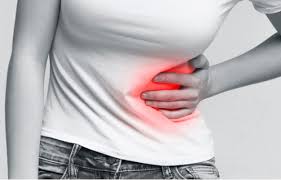
Peritonitis is a serious inflammatory response or serious infection which can spread to the wall of the abdomen and abdominal organs. This condition is usually caused due to the fungi or bacteria which make an entry via the leakage, present in the digestive system like bowels and intestines. This infection is known to have a negative impact on people, having a weak immune system.
Symptoms of peritonitis
Here is a list of some of the common symptoms of peritonitis:
Bloating stomach
Pain in the abdomen
Fatigue
Presence of fluid in the abdomen
Fever
Difficulty in drinking fluids due to reduced urination and edema
Shortness of breath
Loss of appetite
Swelling in the legs
Causes of peritonitis
Reaction owing to the release of pancreatic enzymes, bile and other digestive enzymes
Obstruction of bowels
Perforation of an organ in the abdomen
Infection in the abdominal cavity.
Remedies to treat peritonitis
Here are a few of the natural remedies that can be useful for the treatment of peritonitis:

Following a proper diet
If you are suffering from peritonitis, you should intake a wide array of vegetables and fruits to get a bunch of antioxidants. Few of the food items that are loaded with antioxidants are inclusive of fresh fruits such as green vegetables, berries, acai, cocoa, and green tea. It is also recommended to intake food products that are enriched in vitamin B. Few of the animal proteins which are considered to be the adequate source of animal proteins are inclusive of beans, almonds, eggs, fish, meat, leafy green veggies, whole grains, etc.
Say no to food with a high sodium content
It is recommended to avoid the intake of food products that can make the retention of fluids really worse. Hence, it is recommended to avoid the intake of food products such as fast food, packaged food, frozen food, processed meat, bottled dressings, condiments, etc.
Intake of probiotic food items
Consumption of probiotic food materials such as cultured vegetables, fermented dairy products plays a vital role in the restoration of beneficial bacteria in the diet. After the intake of antibiotics, they can be beneficial in order to improve the recovery process as well as the digestion process.
Reduce the intake of food items that may cause inflammation
It is recommended to reduce the intake of inflammatory food products such as refined grains, added sugar, packaged food items that consist of additives, sodium, preservatives, refined vegetable oil, etc. You should also say no to alcohol, caffeine, and tobacco.
Reduce your intake of excess fluid
Intaking too much fluid results in edema, swelling of the abdomen and worsening of distention. Hence, it is recommended to reduce the intake of excess fluid. However, during recovery, it is recommended to intake 6 to 8 glasses of filtered water on a daily basis with an eye to prevent dehydration. If you find that the retention of fluid is getting worse, consult the physician immediately.
Take adequate rest
In case you are suffering from peritonitis, it is recommended to take adequate rest for faster recovery.